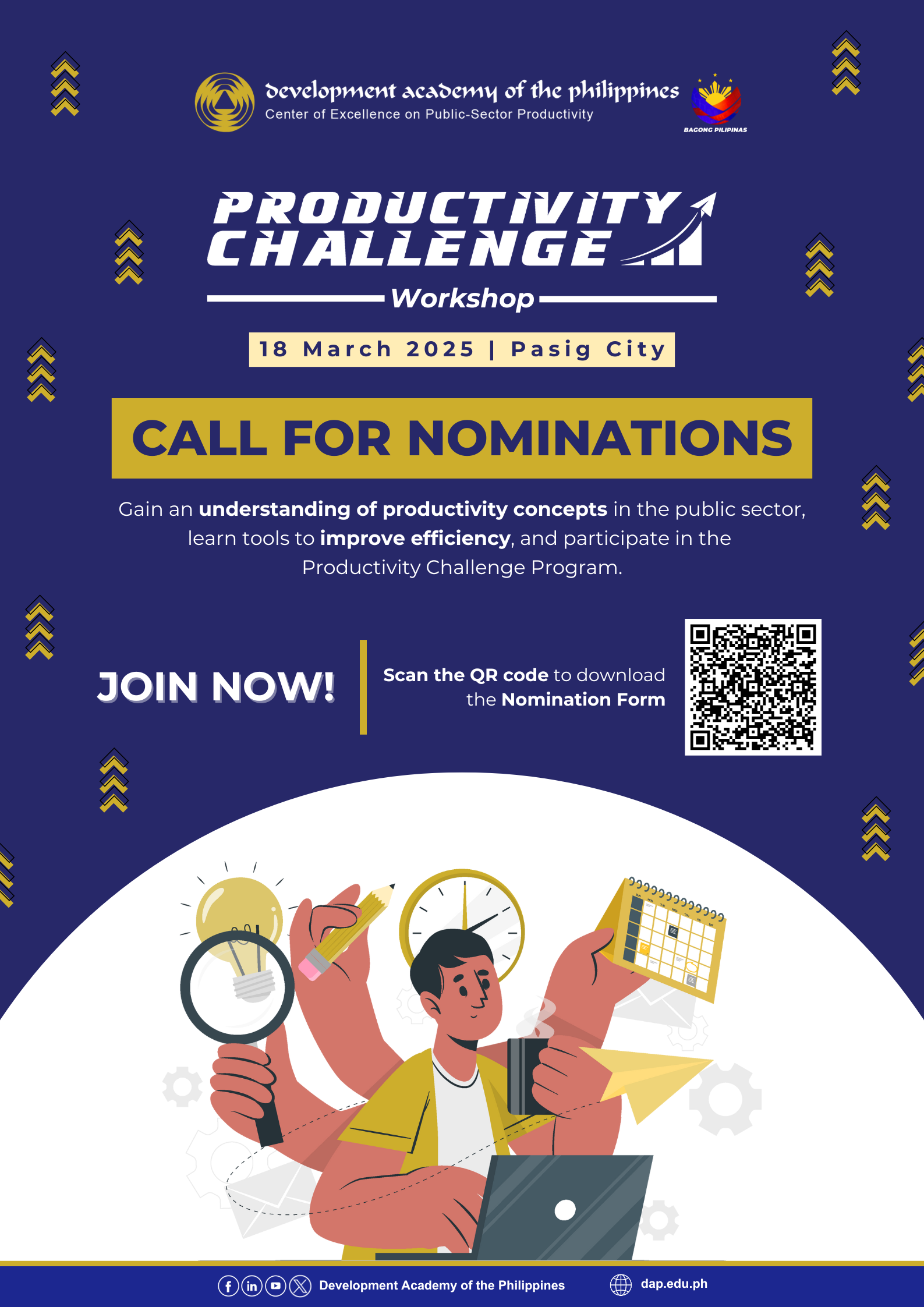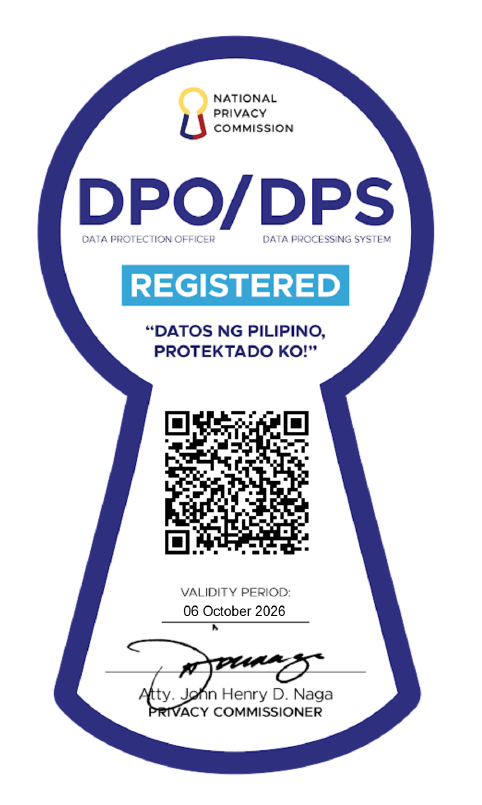The Development Academy of the Philippines recently hosted the Asian Productivity Organization’s multi-country observational study mission on Regulatory Review: Enhancing Public Sector Productivity, a study mission aimed at promoting wider discussion and review of the impact of implementing regulatory reforms on performance and productivity in the government.
This includes an understanding among member governments of the APO of good regulatory reform management and best practices of organizations to make regulations more responsive to the changing times.
The study mission, which was attended by 18 participants from 11 APO member countries last November 19-23, focused on regulatory policy principles, framework for good regulatory management, whole-of-government approach to regulatory reform, and review criteria and impact assessment of regulation. The program consisted of presentations of resource papers, sharing of best practices, and visits to various government agencies.
Resource persons
Dr. Shin Kim, senior research fellow of the Korea Institute of Public Administration, and Hector Espindola, Director of Facilitation and Regulatory Quality of the Mexico Ministry of Tourism, served as resource persons who were invited by the APO to share their knowledge on regulatory policy and review.
Espindola gave an introduction to regulation policy, management and reform on the first day, stressing the need for governments to continuously improve regulatory quality by reforming regulations that create unnecessary obstacles to competition, innovation and growth while ensuring that regulations efficiently serve important social objectives. Dr. Kim in addition also discussed the framework for a good regulatory management system, sharing the principles of regulatory reform and the review process for new and existing regulations as practiced by the Korean government.
Regulatory impact analysis
On the second day of the study mission, the participants then attended the Symposium on Regulatory Impact Analysis (RIA) at the Richmonde Hotel to listen to the experiences and lessons learned by government agencies in the Philippines when RIA was institutionalized in their regulations-making and review process.
DAP Senior Vice President Magdalena Mendoza formally opened the symposium with a presentation on smart regulation, with Dr. Kim then giving an introduction to the steps in conducting RIA and Espindola sharing the Traffic Light Score Methodology (TLSM), a tool used to measure the quality of ex-post evaluation.
Patrick Patriwirawan Jr. of the Department of Labor and Employment’s Institute of Labor Studies and Engr. Janice Vargas of the Bureau of Agricultural and Fisheries Engineering also shared their experiences in implementing RIA in their respective agencies.
DAP-developed system
DAP Vice President Arnel Abanto also introduced the regulatory management system being developed by the DAP before Dr. Joel Yu made a presentation about compliance cost analysis.
The study mission participants had the opportunity to visit four Philippine government agencies to learn about best practices in regulatory management and reform. The Food and Drug Administration, National Privacy Commission, Philippine Economic Zone Authority, and the City Government of Valenzuela hosted the participants over the course of two days. The site visits enabled the participants to observe how different regulatory agencies carry out their mandate through a spectrum of regulatory enforcement options. The agencies also shared their ongoing efforts in reviewing their regulations and streamlining their current processes in order to reduce the regulatory burden on their regulated entities and consequently increase regulatory compliance.
Outputs
The outputs of the study mission include group presentations on the learnings made from the site visits as well as individual action plan presentations that are focused on how the participants would translate their learnings into actionable plans upon their return to their respective countries.
The APO has been implementing various projects to educate its stakeholders, especially member governments, on good regulatory practices under its Smart Public Sector Program with the aim of improving overall public sector productivity and performance. Capacity building initiatives are geared toward improving public sector efficiency, responsiveness, and effectiveness in undertaking and deepening reforms in the government. – Marbida L. Marbida




